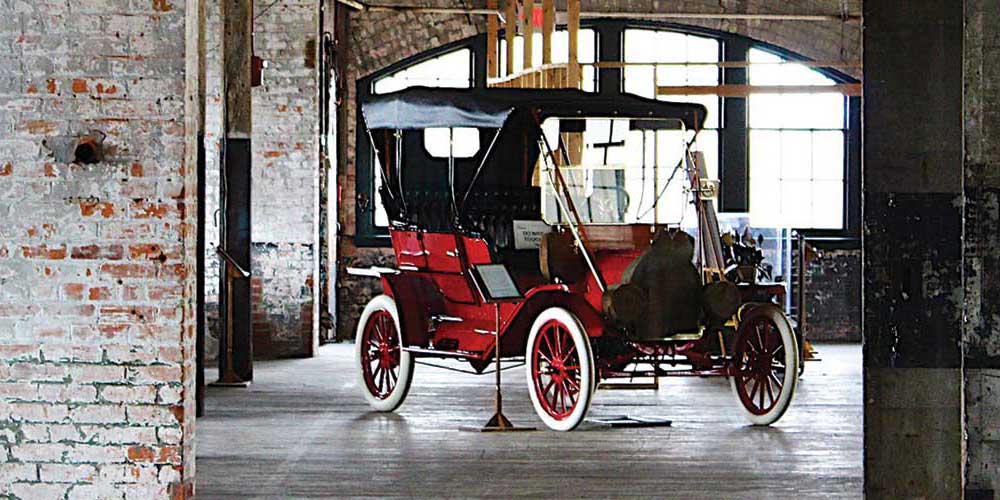By Robert Tate, Automotive Historian/Researcher
Images Courtesy of the National Automotive History Collection
Published 9.29.2014
In automotive history, 1949 is known as a year of big change. This story is about how it all began. With just a simple idea sketched out on a piece of paper, the developments that followed from factory to finish attribute to Ford Motor Company’s successful year. The men and women who helped with design and build these remarkable automobiles made automotive history.
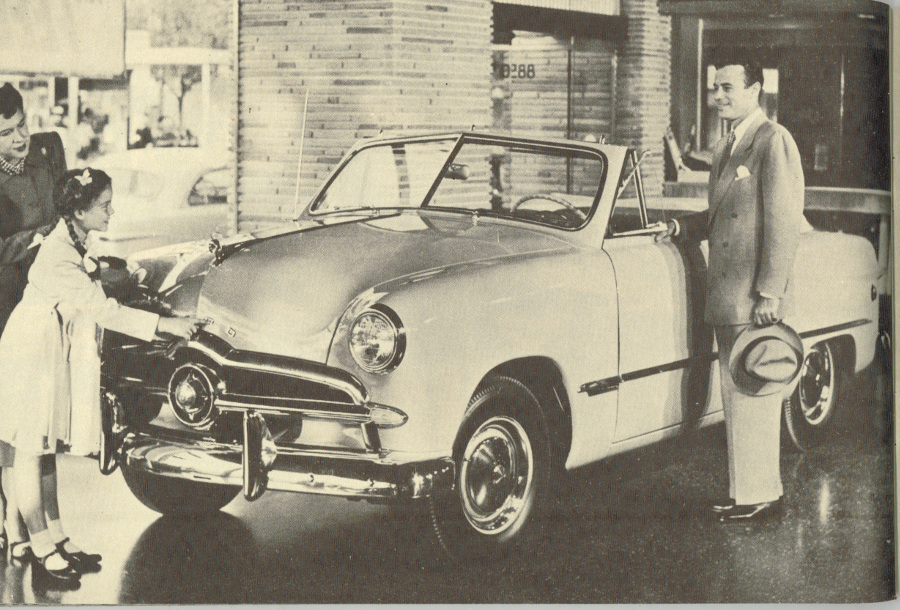
It has been said throughout automotive history that the production and design of the 1949 Ford helped saved Ford Motor Company. The 1949 Ford model was a totally different designed vehicle. It featured new styling features that many Americans thoroughly enjoyed and is still very popular today. Mercury and Lincoln also offered consumers new, attractive body styles as well in that year. However, it was the popularity of the 1949 Ford models that began to sell extremely well within the automotive industry.
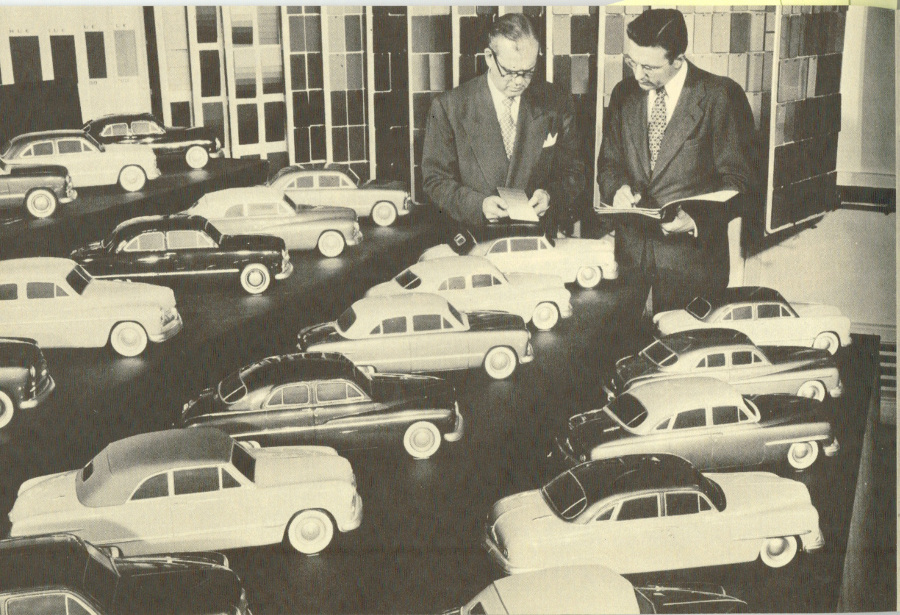
The most popular Ford model of that year was the custom Tudor sedan which was a nicely styled family car priced at $ 1,590 dollars. For this vehicle, Ford adopted the squared off, slab-side concept design which attracted the attention of many consumers on announcement day.
Ford Motor Company wanted to produce a car that would set new highs in styling and performance. In the beginning, a group of engineers and stylists got together and drew a map of their ideas, a car designed from the inside out. Designers looked into the future and drafted unique shapes on paper. Some of the talented individuals directly involved with the 1949 Ford project were as follows: Mr. Ernest R. Breech, Mr. George Walker, Mr. Joe Oros, Mr. Elwood Engel, Mr. Dick Caleal, and Mr. Bob Gregorie among many others.
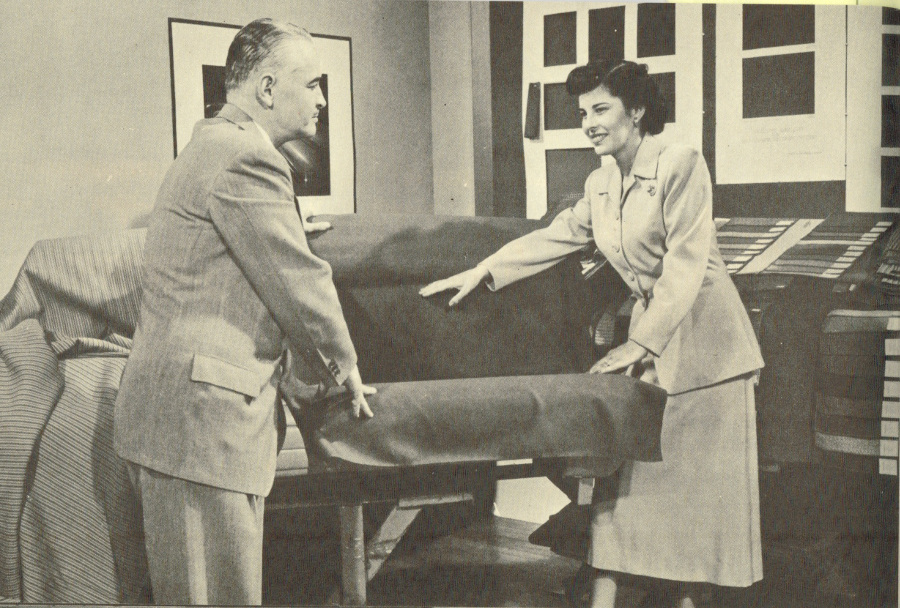
During the developmental stages of the 1949 Ford models, men and women were involved with interior designing, working with thousands of upholstered fabric pattern samples to bring new ideas to life. Engineers and designers also evaluated many scale models of miniature cars in all different colors in order to make the right choice for these special production models. Finally, after many months and thousands of ideas were considered, full-size clay models were produced for the top executives including the Ford family members to vote on. They would decide on every individual feature until the selective model would become chosen for manufacturing and production.
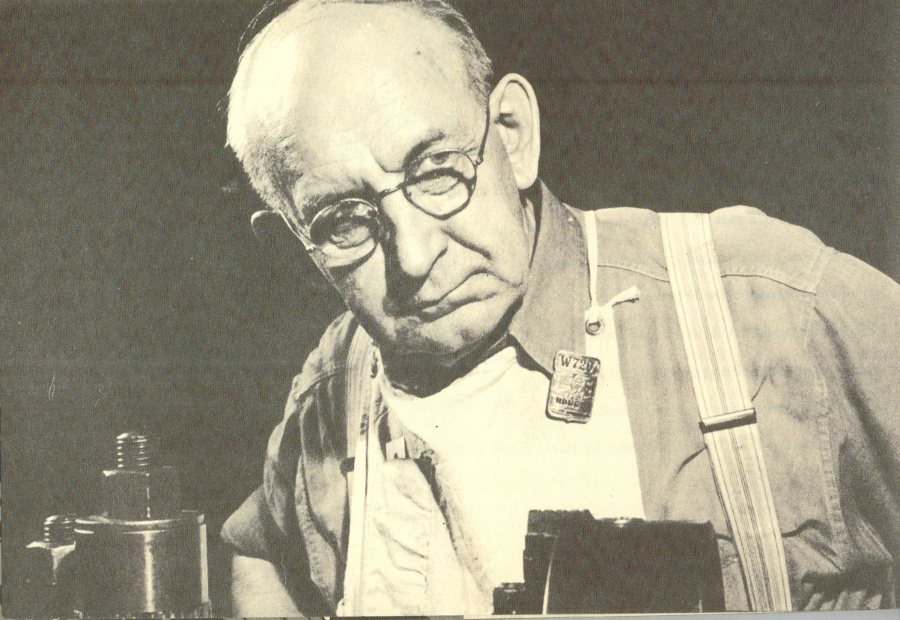
Later, hundreds of draftsmen would design the direction for the production workers to follow. The tool design department would then begin to create the special tools that would be needed to produce Ford's great looking automobiles of 1949. It took weeks to smooth out and finish the tooling in order for the workers to start manufacturing the 1949 Ford models. Raw materials like iron ore were brought in from Minnesota in company boats to start producing Ford models along with other materials.
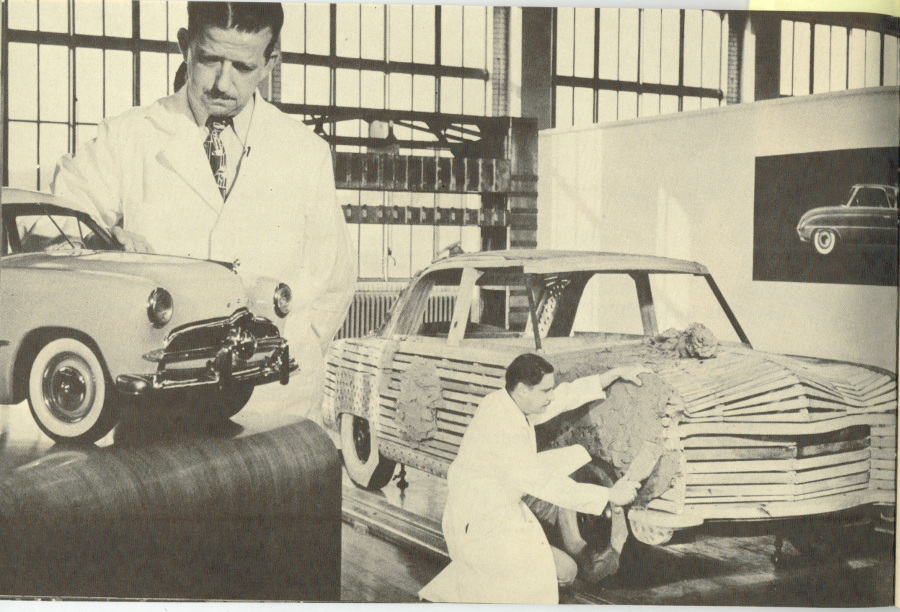
Along every step of the way in production, quality control was on the job! Only products that were approved could move onto the next phase of production. When the last part was installed on the very first vehicle, the inspector assessed it. Then, the dramatic moment occurred when the test driver stepped in, turned the motor on, and the wheels rolled for the first time. They knew then that the model was ready for the consumer market.
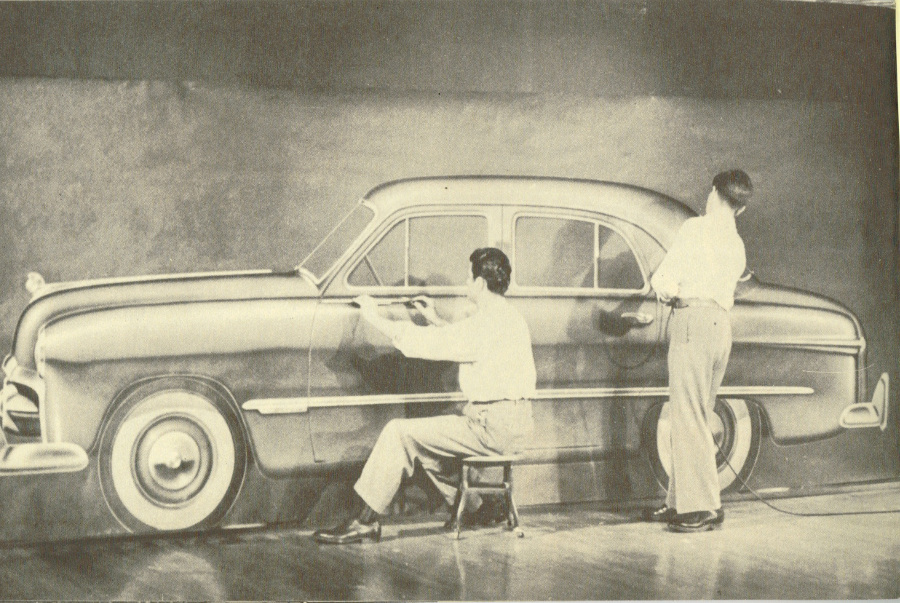
The 1949 Ford models were featured at the Waldorf Astoria Hotel with an estimated crowd of about 55,000 people. These visitors came to see the spectacular displays featuring the 1949 Ford models. Ford had taken giant strides. Never had any new car been received with such whole-hearted enthusiasm from the buying public. News Week magazine said “The new car was certainly, as advertised, Ford's most radical face-lifting since the Model A. It was definitely modern and definitely slinky”. In conclusion, the 1949 Ford models made history by saving Ford Motor Company. This great looking automobile will forever be a part of our automotive history.
A special thanks to Robert Tate, Automotive Historian and Researcher, for donating the story to the MotorCities Story of the Week program. Photographs are courtesy of the National Automotive History Collection. (Bibliography: Lamm Michael & Holls, Dave. “A Century of Automotive Style 100 Years of American Car Design.” 1996. Dammann, George H. “Illustrated History of Ford.” 1971. “The Ford Dealer Graphic Forty-Niner Makes Ford History.” Published by the Ford Motor Company For Ford Dealers 1949.)
For further information on photos please visit http://www.detroitpubliclibrary.org/ or email This email address is being protected from spambots. You need JavaScript enabled to view it.. Please do not republish the story and/or photographs without permission of MotorCities National Heritage Area.
If you have a story that you would like to donate to be featured as a MotorCities Story of the Week, email This email address is being protected from spambots. You need JavaScript enabled to view it..


